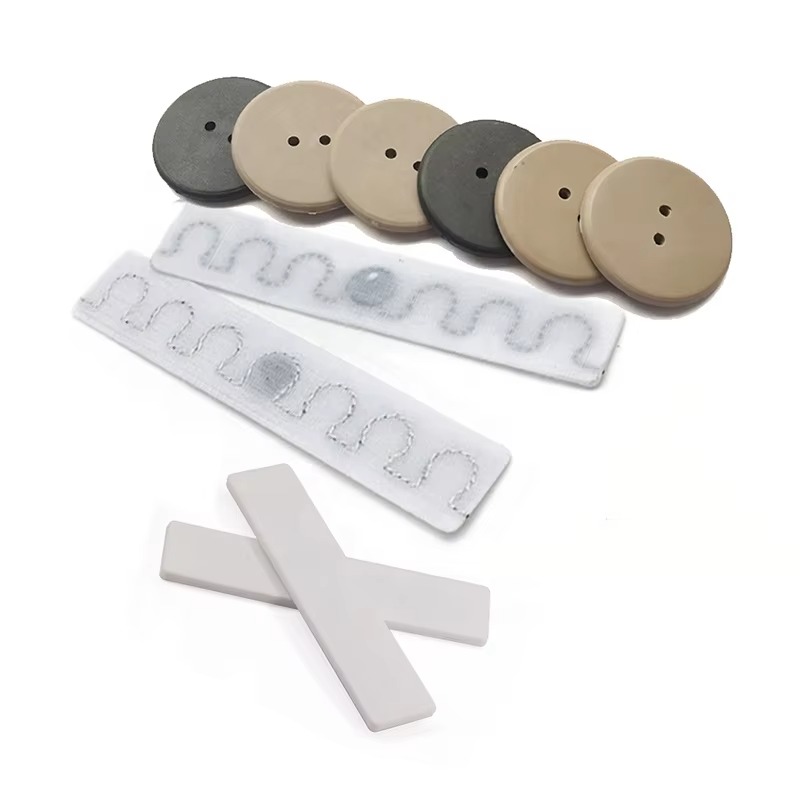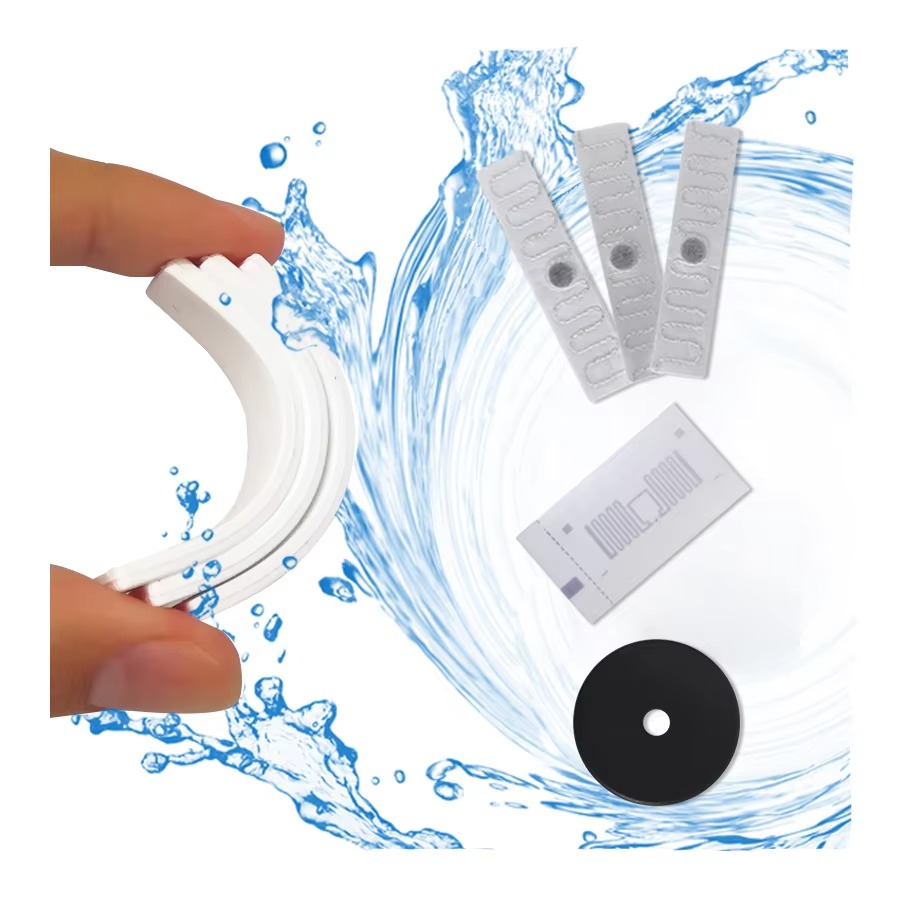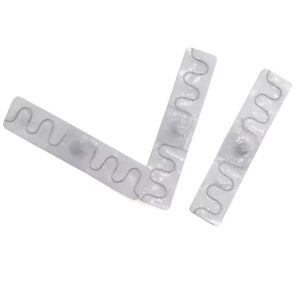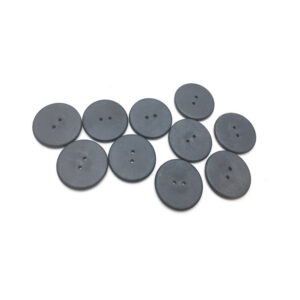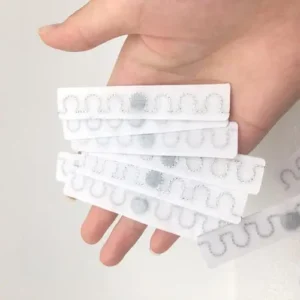Laundry RFID Linen Tags
Durable RFID linen tags: flexible, robust, with long read range. Guaranteed for 200 washes, suitable for stitching, heat-sealing, or hanging. Ideal for laundry use.
Description
Laundry RFID Linen Tags
RFID laundry tag made from textile material with dimensions of 70*15mm and equipped with an NXP U CODE 9 chip is a streamlined tool designed for efficient tracking and management of textiles such as linens, uniforms, towels, and more.
Key Features:
-
Material & Size: This RFID tag is made from a textile-friendly material and measures 70mm by 15mm, a size that is ideal for discreetly labeling various types of fabrics without affecting their aesthetic or tactile qualities.
-
RFID Chip: The embedded NXP U CODE 9 chip ensures high performance and reliable functionality. This microchip facilitates long distance data transmission and possess an extensive memory capacity for storing item information.
-
Durability: Despite the soft and flexible textile construction, this RFID laundry tag is designed to endure vigorous washing, ironing, and pressing processes. It can withstand water, heat, and pressure, maintaining its integrity and function despite repetitive industrial laundry cycles.
-
Efficiency: The NXP U CODE 9 chip technology enables rapid, accurate scanning of the tag even in bulk reading scenarios. This results in quick processing, reducing operation time and improving productivity in textile management.
-
Application: Primarily, these RFID tags are sewn or heat-sealed into textiles before they are put into service. Once attached, automated inventory management, process control, and loss prevention can be facilitated with ease due to the wireless tracking capability these tags provide.
Why traceability plays a crucial role in the textile industry. Here’s a summary of the key points for emphasis:
-
Quality Control: By allowing manufacturers to oversee the quality of their textiles at each level of production, traceability enables the early identification and rectification of quality issues.
-
Product Safety: Traceability ensures the safety of textiles by allowing manufacturers to quickly pinpoint and pull products from the shelves in case of harmful chemicals or defects.
-
Regulatory Compliance: Adherence to strict regulations concerning textiles can be ensured by traceability, this helps manufacturers avoid legal confrontations and tarnishing their reputation.
-
Supply Chain Transparency: Consumers today demand transparency about the origin of their products, the manufacturing process, and whether ethical and sustainable practices have been upheld. Traceability caters to exactly this demand.
-
Sustainability and Eco-Friendliness: The textile industry faces substantial pressure to turn more sustainable and limit environmental damage. Traceability helps manufacturers track the origin of materials and assess the environmental impact of their production processes. This can aid in minimizing waste and incorporating greener practices.
-
Counterfeit Prevention: Traceability is instrumental in confirming product authenticity, thereby preventing counterfeiting and safeguarding the brand’s reputation.
-
Efficient Recall Management: Traceability enables manufacturers to swiftly identify affected products and consumers in the event of product recalls due to safety or quality concerns. This limits the extent and impact of product recalls.
-
Cost Reduction: Traceability systems help identify inefficiencies in the production process leading to cost reduction. It allows manufacturers to track materials and processes, optimizing operations and reducing waste.
-
Brand Reputation: Traceability and transparency foster consumer trust which can significantly enhance a brand’s image.
-
Risk Management: Traceability facilitates anticipatory management of risks related to supply chain disruptions, quality issues, or product recalls, reducing potential financial and reputational damage in the event of a crisis.
Evidently, traceability in the textile industry has tremendous benefits. It not only enhances operational efficiency but also meets consumer expectations for safety, quality, and ethical sourcing.


